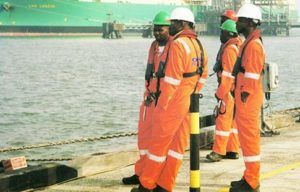
The claim that the global economy runs on shipping is incontrovertible. It is difficult to imagine a world without ships conveying goods across the oceans daily. How would international trade be possible without ships? And for a country like Nigeria that is largely dependent on import, surviving would have been an immense challenge. When others sleep in the comfort of their bedrooms, there are people on the sea, in the midst of the unknown, transporting the next batch of petroleum products that will power our cars, generators, industries and cities. Seafarers work in probably the most uncertain terrain move local and international trade. They are exposed to the risks of natural hazards, sea robbery, pirate attacks, abduction and even death. The peculiar nature of the profession also requires seafarers to go through diverse certification trainings that have been standardised internationally. This explains why many nations recognise and celebrate their seafarers for the huge sacrifice they make. And just as the profession is regulated with internationalised standards that are the same across countries, the industry also has a recommended global minimum wage, which is reviewed periodically by the International Labour Organisation (ILO) Joint Maritime Commission (JMC) based in Geneva, Switzerland.
The JMC is a body of employers’ representatives coordinated by the International Chamber of Shipping (ICS) and seafarers’ union representatives coordinated by the International Transport Workers’ Federation (ITF). But contrary to what obtains in other countries where they enjoy motivating welfare packages based on recommended global standards, Nigerian seafarers are suffering amidst poor remuneration. Seafarers in Nigeria are going through a tough time that is dictated by the prevailing economic condition and high unemployment rate. Whilst some shipping companies have stamped their brands as employee friendly with proper welfare package for their seafarers, others consider their employees as fertile field for economic exploitation by paying low and derisive wages.
The current situation is reflective of our poorly implemented labour laws and the abysmal state of the Cabotage Act implementation. The practice is for some shipowners to employ foreign junior seafarers and pay them better than the Nigeria counterpart who is even more qualified in some instances. Aside the demoralising repercussions of this practice, it has also stalled the professional growth of the seafarers.
The Nigerian Maritime Administration Agency (NIMASA) has repeatedly promised to spearhead a better deal for the seafarers but no progress has been made along this line. At an event to commemorate the International Day of the Seafarer last year, the Director-General of NIMASA, Dr. Dakuku Peterside promised to enforce relevant provisions of international instruments to protect and improve the working and living conditions of seafarers. We therefore call on the agency to ensure that employers in the industry abide by the provisions of the Maritime Labour Convention (MLC), which Nigeria is a signatory to. Another review of the minimum wage for seafarers by MLC is due this year, but the fear is that Nigerian seafarers may not benefit from it going by the current state of affairs. Employers must not be allowed to exploit the current high rate of unemployment in the country to short-change seafarers while their foreign counterparts smile to the bank.
Copyright Ships & Ports Ltd. Permission to use quotations from this article is granted subject to appropriate credit given to www.shipsandports.com.ng as the source.
